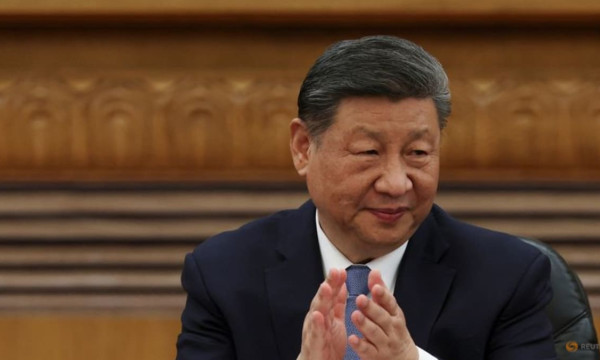Xi Jinping’s Southeast Asia Tour Aims to Counter Trump’s Tariff Impact

Xi Jinping's Southeast Asia tour is designed to combat the effects of Trump's tariffs.
Chinese President Xi Jinping embarks on a five-day, three-nation tour of Southeast Asia starting Monday, April 14, 2019 to enhance trade relations and reduce the effects of aggressive tariff policies by US President Donald Trump. In this visit to Vietnam, Malaysia, and Cambodia, Xi Jinping, the first foreign leader to visit China this year, seeks to enhance China’s role in Southeast Asia as well as the rest of the world in the face of economic turmoil.
In its statement, the Ministry of Foreign Affairs of China termed the tour as “vitally significant” for Southeast Asia. In a statement, Lin Jian, Ministry spokesperson stated that the Xi-Trump meetings would enhance relations with the 10-member Association of Southeast Asian Nations (ASEAN) which imported $586.5 billion worth of Chinese goods in 2024 according to China’s customs data. Vietnam stood in the first place with imports worth $161.9 billion followed by Malaysia with imports valued at $101.5 billion. Through this stance, Beijing seeks to challenge Trump’s policies that have been termed as ‘unpredictable’ in the markets.
The tariffs imposed by Trump at the beginning of the month started with a 46% duty on several products and caused a global economic downturn. He then relaxed the measures by suspending the tariffs for ninety days for most countries and also removing consumer electronics from the list of the affected products but maintained a 145% tariff on China. Minister of Commerce of China Wang Wentao in a call with WTO director general Ngozi Okonjo-Iweala described the tariffs as “severely harmful” to the developing countries as they distort the patterns of trade.
The tariffs present a problem for the Southeast Asian countries. According to Huong Le Thu, the deputy director of the International Crisis Group’s Asia Program, the policies of Trump have “created major anxiety” in the region. If the tariffs are to be applied to other economies, they may force these economies to move away from the United States and towards China, thus increasing their cooperation with the latter. Beijing has taken advantage of the situation and has been working hard to obtain tariff suspensions and to enhance its relations with ASEAN in order to make up for any potential losses.
Xi’s tour is strategic. Vietnam, being a manufacturing powerhouse, and Malaysia, being a major trading ally, are crucial to the export-oriented economy of China. Cambodia, a diehard supporter, further cements Beijing’s position in the region. China seeks to reduce the impact of U.S. tariffs by enhancing cooperation with these countries and ensuring the continued dominance in the ASEAN market. The meetings will probably encompass trade agreements, infrastructure investments, and economic cooperation, which will enhance the position of China as a stable partner as opposed to the U.S.
The 90-day pause has brought some comfort but the tariffs still remain a threat. Although the 90-day window provides some comfort for the ASEAN countries, the risk of future tariffs remains high. China’s proactive approach is the opposite of the US’ and may influence the attitudes of the people in the region. As Le Thu pointed out, if the tariffs are sustained, developing countries will be forced to drift away from Washington and this will alter the global trade relations.
Xi is likely to stress on the advantages of cooperation such as supply chain resilience and investment opportunities to make China look like a stable partner. Trump’s policies may estrange his allies, creating space for Beijing to occupy. Southeast Asia finds itself in a difficult situation of being dependent on China for trade and at the same time having to maintain good relations with the US, a situation that Xi’s visit seeks to address in Beijing’s advantage.
Xi’s tour is an indication of China’s readiness to take the lead during these times of uncertainty in the global markets. Through the ASEAN engagement, Beijing seeks to defend itself against Trump’s tariffs and create a China-dominated regional architecture that will affect trade and geopolitics across the world.

Dominic Maley is an American journalist recognized for his sharp and insightful reporting on social and political issues. His work is known for its depth, integrity, and the ability to highlight critical societal concerns.